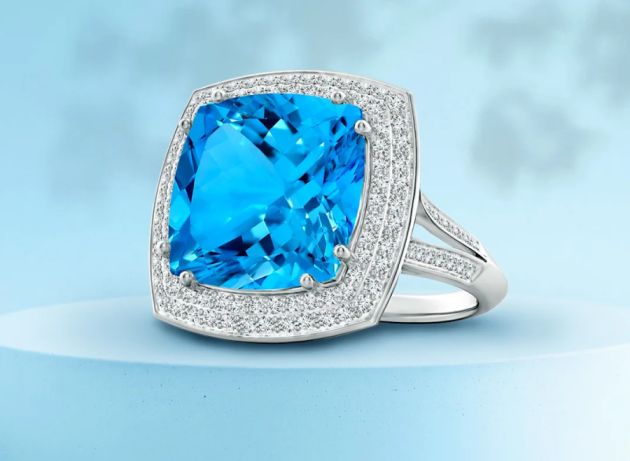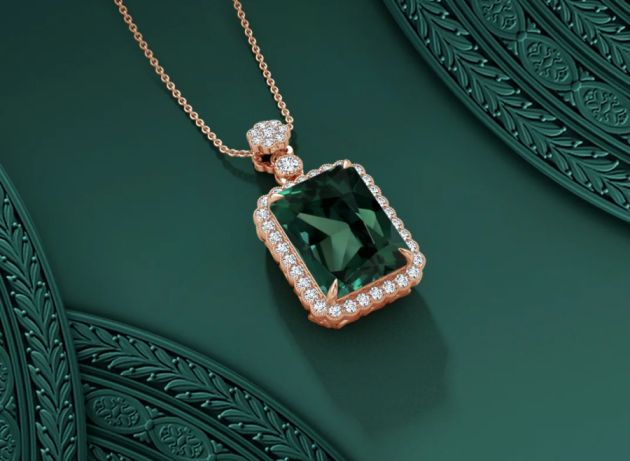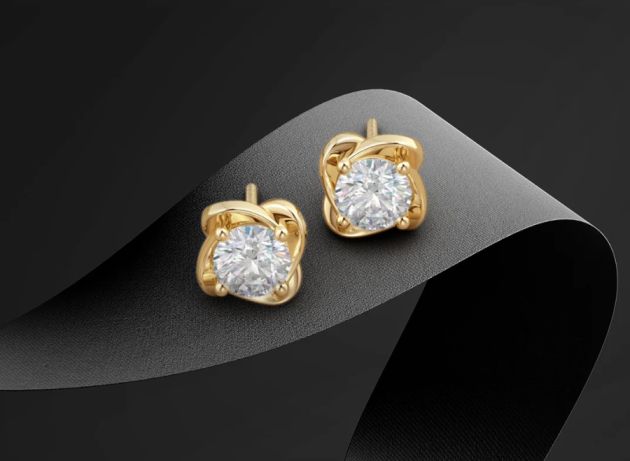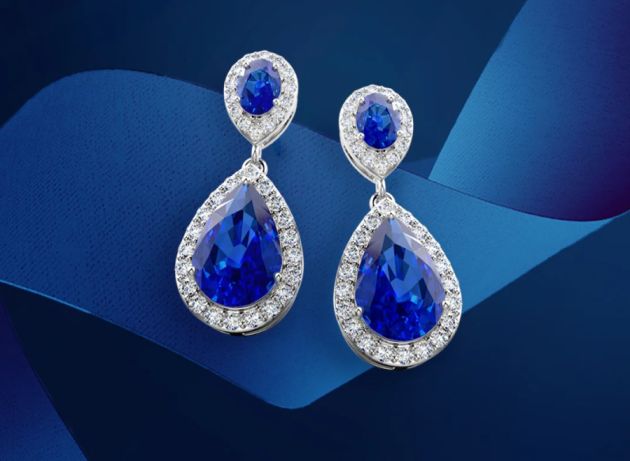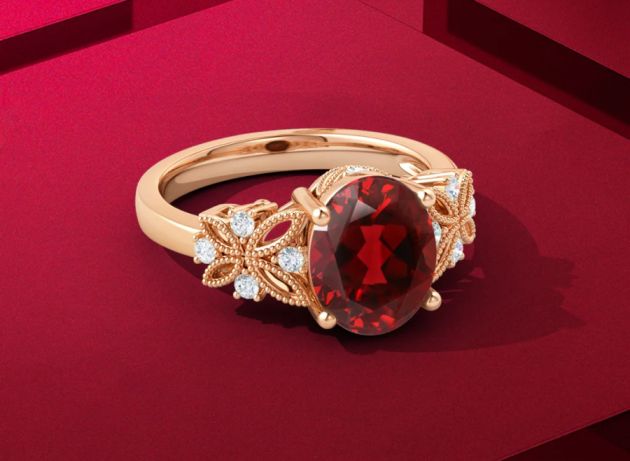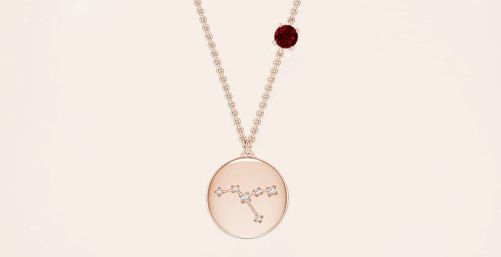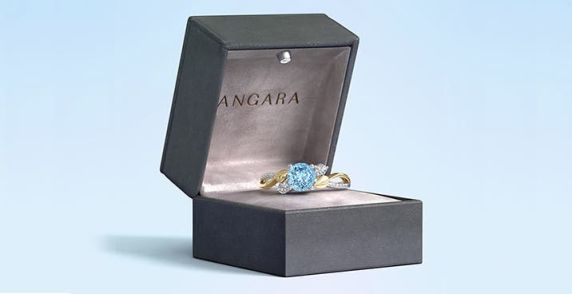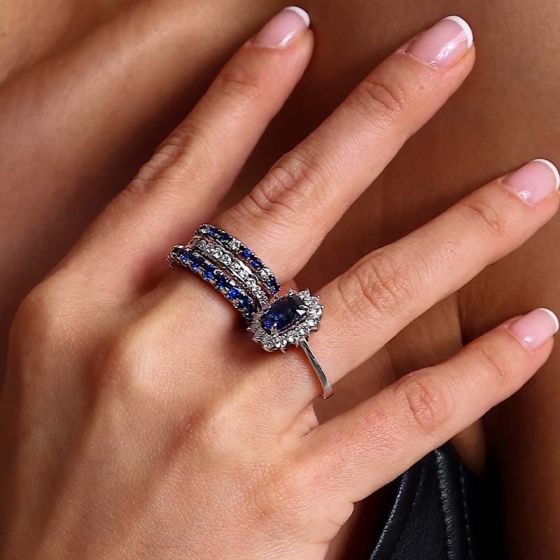Love cartilage earrings but they make your ear itch? It’s the material! Most people choose earrings for cartilage ear piercing without paying attention to the sort of material that is used. Even though they may match one’s clothing and appear attractive, these hoop earrings for sensitive ears do more harm in the long run, especially to those who wear cartilage earrings every single day.
If you have sensitive ears or skin, getting the ideal earring set might be difficult, but that’s why we are here! From helping you understand the different reasons related to ear sensitivity to picking the right material in cartilage earrings, this blog will cover it all.
What Makes Your Ears So Sensitive?
Metals are a blend of metal alloys, which means that 14k gold is not 100% gold, as there are other metals involved in the making of a particular earring. Therefore, even if you are not allergic to gold, you may be allergic to other metals present in the earring that cause irritation and redness. That said, nickel is one of the most notorious metals when it comes to skin allergies around the ear, and those who develop an allergy due to nickel, deal with it their entire life. Ever wondered why some earrings are labeled ‘nickel-free’? Well, now you know! The first and most obvious step for those who have sensitive ears is to wear earrings made of safe materials, so keep reading to find out what those materials are.
What Are Hypoallergenic Cartilage Earrings?
Hypoallergenic cartilage earrings are made of non-allergic metals. Even though these earrings are widely available in the market, every pair described as “hypoallergenic” doesn’t imply that they will be safe to use. The majority of low-cost hypoallergenic earrings are made of base metal that has been plated, preventing the base metal’s allergens from coming into contact with your skin. For the most part, your ears will get inflamed after the coating disappears.
While these less expensive choices can be used occasionally, it is advisable not to wear them all the time. The ideal earrings for everyday wear are the ones composed of premium metals that don’t trigger allergic responses.
Also Read: Things To Know Before Getting Cartilage Piercings
Best Earring Materials for Sensitive Ears
When it comes to different materials, it is best to avoid wearing earrings made of nickel as this metal is known to cause allergic reactions in the skin. Besides this, uncomfortable cartilage earring length can also aggravate your ear allergies by tugging on to your piercing.
The best materials for cartilage earrings include silver, gold, and platinum. When buying earrings, you should exercise caution and only opt for earrings that are made up of at least 14k gold or higher, or those that include 925 sterling silver.
Plastic, titanium, stainless steel, and niobium are some of the more affordable materials for everyday earrings that might work for your delicate ears. The best materials for cartilage earrings that have low allergic reactions for your delicate ears are the ones mentioned below:
1. Aztec Gold
Also referred to as PVD, Aztec gold does not discolor or cause a negative reaction when it comes in contact with the skin. This is a lightweight material that is popularly used to make earrings and other forms of trendy accessories. If you don’t want to go for pure gold, you can choose cartilage earrings made out of Aztec gold which look just as fashionable and alluring.
2. Sterling Silver
The ideal metal for earrings is considered to be sterling silver, which does not cause any adverse responses on one’s skin. However, pure silver earrings are rather delicate and not very strong. Most jewelry designers and craftsmen use sterling silver, composed of 92.5 percent silver and 7.5 percent of additional metals, including copper and nickel.
3. Titanium
The next best material for stud earrings on our list is titanium, a metal that is both lightweight and durable. It is a great option for those who are susceptible to nickel allergies and is generally the preferred choice for those who wish to get a cartilage piercing. Titanium is a pretty strong metal, which is resistant to seawater corrosion.
4. Surgical Stainless Steel
A popular substitute for medical-grade earrings made of platinum and gold is surgical stainless steel (SSS), which is a combination of several corrosion-resistant metals. If you have sensitive ears, you can purchase these types of cartilage earrings for a reasonable price.
You can also select any dainty cartilage earrings based on your skin tone and skin sensitivity as there are endless options to choose from. The finest cartilage earrings are available in a variety of designs and materials, such as gold-plated hoops and titanium studs.
Surgical Steel or Sterling Silver?
Surgical steel is said to be the most durable material and is ideal for everyday earrings or accessories. Even though it can get scratches, it is not as susceptible to breaking, the way sterling silver is. In addition to this, surgical steel does not oxidize either and is a preferred choice for budget-friendly cartilage earrings.
Although low-carbon surgical stainless steel does include alloys, these are all contained in the metal with the help of a unique procedure and are not released, making low-carbon surgical stainless steel perfect for body piercing. All in all, surgical stainless steel is a viable option for those who are prone to skin allergies.
Metals for a New Piercing

To avoid inflammation or infection, one should be very cautious when selecting materials for their initial piercing. It is recommended to go for high grade metals like titanium, niobium, solid 14- or 18-karat gold and solid platinum.
It is also suggested that you avoid using any material incompatible with the body and choose quality materials that help in avoiding infection or allergies. Materials like silver, sterling silver, plastic, and stainless steel that don’t have an associated implant-grade standard, and any gold-plated or gold-filled earrings should be avoided.
Metals for Old Piercings

The most essential thing is to stick with metals that don’t irritate your skin if you’ve had your piercing for a considerable amount of time. If you have nickel sensitivity—which is among the most common, you should avoid both nickel and stainless steel. Instead, you should go for hypoallergenic metals like pure gold or titanium. However, if you are not reactive to nickel, the world is yours and you can easily pick any earring style that’s out there.
Metals to Avoid if You Have Sensitive Ears
When it comes to sensitive ears, there are a few metals for earrings that you should stay away from. Below are some of them.
1. Nickel
The most common metal that causes allergic reactions across different skin types is nickel. It is the worst metal to use for earrings because it is combined with so many other alloys, making it difficult to determine the ones that are worst for your skin. Nickel is a tough kind of white metal that is frequently used in sterling silver and gold alloys. If you’re unsure, you can ask the jeweler about the nickel content of the earrings.
Unfortunately, there are several earring types that include nickel, which is the most frequent metal allergy trigger. It is typically blended into metal alloys like gold and sterling silver. Never forget to ask the jeweler whether the earrings you intend to purchase contain any nickel or not so that you can get the right pair, which is safe for your ears and skin.
2. Metallic Plates
The main components of plated metals are vermeil and rolled gold. These metals can trigger allergies since they are already present in some basic metals, such as nickel or zinc. All of these metals ultimately come into direct contact with your skin as the plating wears off, resulting in skin reactions. It is advised to stay away from wearing earrings made of plated metals if you have sensitive ears or skin.
3. Cobalt
Due to its durability and heat resistance, cobalt is another metal utilized in metal alloys, similar to nickel. Cobalt is one of the most prevalent causes of metal allergies and is well known for its toxicity. Earrings containing cobalt should be completely avoided if you have delicate ears.
You must select high-quality pieces made from the best materials at a reasonable price if you want to purchase real cartilage earrings that are the most appropriate for you. As new cartilage piercings are delicate and prone to infection, go for earrings made of hypoallergenic metals like high karat gold, surgical stainless steel, or titanium.
Choosing the proper metal can be difficult for beginners, which is why we recommend you have a clear discussion with the jeweler to understand which type of earring would be best suited to your skin.
Also Read: 4 Most Comfortable Earrings to Sleep In
Conclusion
The cartilage area is a sensitive one, hence you must get the right kind of earring that will not cause a negative reaction. This is the one time you would not want to skimp on the price and get high-quality cartilage earrings, as high-quality metals or materials speed up the healing process of a piercing, while materials such as nickel or cobalt stall the recovery of the pierced area. When in doubt, stick to high carat gold, Aztec gold, sterling silver, or titanium.
FAQ
Yes, gold nose rings made of 14 karats or above are safe to wear. Pure gold must be used, not gold plating.
Yes. People with sensitive skin or nickel allergies can use titanium for their nose piercings because it doesn’t contain nickel.
Typically, gold, silver, or titanium studs are the preferred choices when it comes to cartilage earrings.
Surgical stainless steel (SSS) is the best piercing metal for sensitive skin types because it is both hypoallergenic and inexpensive.
